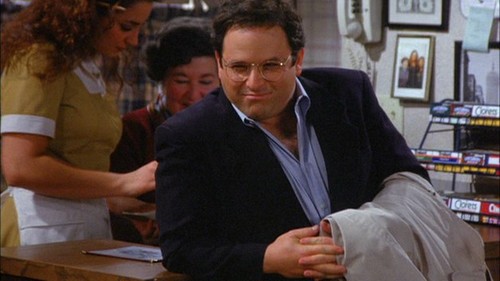
1. Tim Kreider strikes again! Over at The New Yorker, he doubts whether people should ever design their own book cover. As good as some of Malcolm Gladwell’s material can be, his covers are the gold standard in marketing and catering to expectations. See, for instance, the Malcolm Gladwell Book Generator, and you’ll see what he means (Stretch: What George Takei, the Boston Celtics, and a Toaster Oven Have in Common). Anyway, Kreider’s insights, as usual, go a bit deeper, ht LL:
There’s often an embarrassing disconnect between how people try to present themselves and how they’re actually perceived, which is why they ask their friends to tell them honestly how they look in something—and why publishing houses hire professional designers for books’ covers and allow their authors very little say over them…
Looking at those old, beloved covers made me wonder: How come books for kids get to look so mysterious and tantalizing and spooky, while books for us grownups have to be so dull? Why don’t the covers of mainstream literary books make me feel that same way—almost scared to find out what’s inside? For some reason children’s books, Y.A. literature, and genre fiction still have license to beguile their readers with gorgeous cover illustrations, but mature readers aren’t supposed to require such enticements. For serious literature to pander to us with cosmetic allurements would be somehow tacky, uncool. The more important a book is, the less likely there is to be anything at all on its cover (look at most editions of “Ulysses”)…
So there’s an image, and within the image always an element of posing to generate popular appeal even though, as Kreider points out, the truly appealing book covers (c. weird sci-fi) tend to be freer, more playful and somehow more themselves.
2. Also in the Kreider-sphere , check out The Center for Gospel Culture’s recent piece, “Are You Wearing a Soul-Toupée? Me Too!” A few highlights:
The concept of the soul toupée is both hilarious and painful because it is simply true to human experience. I’m wearing a soul toupée, and so are you. You can see mine. And I can spot yours. We’re simply terrible at concealing those things we feel must be concealed at all costs. And the terrible thing about the soul toupée is the care, upkeep, and management it requires. We find ourselves consistently adjusting it, grooming it, making sure that it is held firmly in place, because if it slips, we will be exposed…
The gospel–which claims that Christ became incarnate, lived, died, and rose again for our salvation and our ultimate justification/acceptance before God–is a soul toupée’s worst nightmare. In the gospel, we are exposed for what we are. Our cover-ups are uncovered; the game of hide-and-seek comes to an end and we lose. Why would this exposure ever be good news? Precisely because there is Another who willingly bears the shame, reproach, and guilt that is ours because of sin and brokenness. Because Jesus is exposed, counted as unacceptable, and cast down to death on our behalf, our exposure before God–the removal of this silly soul toupée–leads not to rejection but full acceptance; we are not cast down to death but pulled into new life. That kind of promise–the promise that I can be known, “truly, all the way through,” and yet not rejected–is exactly the kind of assurance I need in order to take this terribly obvious, rather ridiculous thing off my soul.
3. In memoriam, Peggy Noonan at the Wall Street Journal recently did a piece on John Profumo – you know, the British Secretary of State for War who had an affair back in 1963 with a 19-year-old woman who was also involved with a Soviet spy. Though what he did was wrong, it was also one of the great examples of public gracelessness in the wake of a prominent figure’s mistake. Noonan examines his reaction to the outrage, and it reveals the freedom and genuine kindness that the death of self-justification may (just may!) engender, ht BG:
Because Profumo actually believed in shame, he could absorb it and let it change him however it would. In a way what he believed in was reality. He’d done something terrible—to his country, to his friends, to strangers who had to explain the headlines about him to their children…
He never knew political power again. He never asked for it. He did something altogether more confounding.
He did the hardest thing for a political figure. He really went away. He went to a place that helped the poor, a rundown settlement house called Toynbee Hall in the East End of London. There he did social work—actually the scut work of social work, washing dishes and cleaning toilets. He visited prisons for the criminally insane, helped with housing for the poor and worker education.And it wasn’t for show, wasn’t a step on the way to political redemption. He did it for 40 years.
He didn’t give interviews, never wrote a book, didn’t go on TV. Alistair Horne: “Profumo . . . spent the rest of his life admirably dedicated to valuable good works, most loyally supported by his wife. At regular intervals, some journalist writing ‘in the public interest’ would rake up the old story to plague the ruined man and cause him renewed suffering. His haunted, unsmiling face was a living epitaph to the ‘Swinging Sixties.'”In November 2003, to mark the 40th anniversary of his work at Toynbee, Profumo gave an interview to an old friend. “Jack,” said W.F. Deedes, “what have you learnt from this place?” After a pause for thought, Profumo said: “Humility.”
Incidentally, Profumo was honored by a seat at the right hand (Mk 10:37-34) of the Queen for Margaret Thatcher’s 70th birthday. Noonan’s point? Disgraced politicians in the US can learn after his example. But for my money, at least, the story of his imputed place of honor next to the Queen is as (or more) inspiring.
4. Why do we like superheroes? We’ve done a good bit on the subject lately, but the ever-reliable Atlantic chimes in this week on the discussion:
Why does the public want that big, dumb [superhero], though? That’s a worthwhile question, and one you would think that a book titled Our Superheroes, Ourselves might set itself to answer. Edited by Robin S. Rosenberg, the volume is, as the intro says, “a collection of essays by noted psychologists in which the authors apply their knowledge of psychology to our relationship to superheroes, and to the extent to which superheroes’ psychological nature reflects human nature.”…
Ben Saunders gets at the crossover between psychology and superheroes, and at the difficulties it imposes, in his excellent 2011 book about the intersection between religion and superheroes, Do the Gods Wear Capes? (which, in a major oversight, none of the writers here cites). In his chapter on Iron Man, Saunders discusses the 1979 story arc by David Michelinie, Bob Layton, and John Romita Jr., called “Demon in a Bottle” in which Tony Stark struggles with alcoholism. Saunders talks about the storyline in terms of the language and philosophy of Alcoholics Anonymous. Tony Stark relies on the technology of the Iron Man suit to solve his problems. He relies on alcohol–which, Saunders said, AA traditionally sees as a “coping mechanism”–to manage emotional and psychological states.
Comics Journal writer Tom Crippen titled an essay about Superman “The Big Dumb Dream.” It’s funny because it’s true: Superman, and the superheroes that followed him, are, as dreams go, big and dumb. There’s a kind of genius to that bigness and dumbness. If people like strong, powerful heroes, why not create a hero who is exponentially stronger and more powerful than any hero ever seen before? But the genius is also the genius of the lowest-common-denominator panderer. Siegel and Shuster, Superman’s creators, figured out exactly what big, dumb thing the public wanted–and the rest is history.
Why does the public want that big, dumb thing, though? That’s a worthwhile question, and one you would think that a book titled Our Superheroes, Ourselves might set itself to answer. Edited by Robin S. Rosenberg, the volume is, as the intro says, “a collection of essays by noted psychologists in which the authors apply their knowledge of psychology to our relationship to superheroes, and to the extent to which superheroes’ psychological nature reflects human nature.”
This seems like a reasonable approach and a reasonable goal. And yet, somewhere along the way, most of the essays in the book go wrong. Whether criticizing superhero narratives or extolling them, the psychologists here seem to have trouble articulating why they’re focused on superheroes in particular, rather than on pop culture in general, or even on something else entirely. For example, Peter J. Jordan argues that the classic ’60s Marvel superhero comics are worthy of serious consideration because they presented characters whose emotions are variable depending on the situation they find themselves in–which may well explain why Marvel Comics are better than DC Comics of the same period, but doesn’t exactly make a compelling case for artistic depth on any other metric. Similarly, Gary N. Burns and Megan B. Morris praise superhero stories for providing their protagonists with somewhat realistic, stressful work lives… but surely lots of other media do that too. Why pay attention to superheroes, then? The big dumb dream, for all its bigness, comes across here as oddly elusive.
In part the problem may be a matter of distance: Though many of the psychologists say that they’re superhero fans, the nerd knowledge on display is often a bit shaky. (The Watchmen, for example, are not a superhero team, and mentioning Stan Lee as the architect of the Marvel age without also referencing Jack Kirby is a big faux pas.) But I think some problems also stem from the way that psychology and superheroes are too close to each other. They have preconceptions about power and morality in common, and as a result some of the authors here seem to find it hard to pull back far enough to get perspective on what is unique about superheroes, and whether or why that uniqueness matters.
Ben Saunders gets at the crossover between psychology and superheroes, and at the difficulties it imposes, in his excellent 2011 book about the intersection between religion and superheroes, Do the Gods Wear Capes? (which, in a major oversight, none of the writers here cites). In his chapter on Iron Man, Saunders discusses the 1979 story arc by David Michelinie, Bob Layton, and John Romita Jr., called “Demon in a Bottle” in which Tony Stark struggles with alcoholism. Saunders talks about the storyline in terms of the language and philosophy of Alcoholics Anonymous. Tony Stark relies on the technology of the Iron Man suit to solve his problems. He relies on alcohol–which, Saunders said, AA traditionally sees as a “coping mechanism”–to manage emotional and psychological states.
Saunders argues that in the comic the armor and the drink are presented as a single problem. And the solution to that problem is, according to Saunders, “to acknowledge that the fantasies of radical independence–absolute power, total control, complete self-reliance–are just that: fantasies… Tony Stark must accept that his sense of self cannot be sustained in isolation.” Saunders links this to the philosophy of AA, which, he says, does not insist that the addict acknowledge God so much as it insists that the addict admits that he himself (or she herself) is not God. Alcohol, like armor–or superpowers–is a way to grasp control. It’s a tool, a technology. And that act of grasping can pull a shell around you… If the big dumb dream of our ancestors was that there were gods, our current big dumb dream seems to be that there aren’t, and that we don’t need them because we’ve taken their place
Which is, incidentally, a great reason to have Robert Downey, Jr. play Ironman. But continuing on,
In some sense, as Saunders says, the therapeutic, psychological model of AA is an alternative to this fantasy of power. It punctures the big dumb dream of godhood; it tells you that you’re not Superman, and you can’t control the world. This syncs with David A. Pizarro and Roy Baumeister’s characterization of superhero narratives as “moral pornography” in Our Superheroes, Ourselves — the stories allow for a continual, controlled hit of moral certainty, just as pornography (they argue) allows for a repetitious, varied array of sex partners.
Wow! Within the contemporary Superman framework, of course, this moral certainty hits home – other or older superhero tales maybe not so much – but it’s also a helpful way to look at movies in general, especially our adaptations which give old movies a modern flair but may also provide some escape (or exfiltration) from our moral ambiguities.
5. To roundout a somewhat more theology-centric week, our favorite Barthian website gave a really nice shout-out to PZ‘s Grace in Practice, one of our very favorite books. In short, the article endorses GIP’s “ground-up” approach of starting with anthropology, with “enmeshed and constricted need”, while still managing to avoid that whole “absolute dependence” grounding that Schleiermacher was into. If you’re a big Protestant theology person, it (along with everything else on their site) is a great read.
Also, for Drive fans, check out the interview over at Grantland with the Danish director discussing his career and promisingly-titled next movie, Only God Forgives. Extreme vulgarity warning, of course, solidly in effect. Interview here.
Bonus: If you haven’t seen this already, it’s a near-perfect take on American comedy, and my favorite Mbird video in quite a while:
[youtube=http://www.youtube.com/watch?feature=player_embedded&v=8k2AbqTBxao&w=600]
And for what’s looking to be the weirdest documentary of 2013:

COMMENTS
One response to “Another Week Ends: Book Cover Identities, Soul Toupées, Profumo’s Turn, More Superheroes, and Grace in Practice”
Leave a Reply

















It’s important to me that John Profumo was married to Valerie Hobson, who stood by her husband through every punch, and forever.
It’s maybe even more important that Miss Hobson played ‘Baroness Frankenstein’ in “The Bride of Frankenstein” as well as the devoted bride of poor Henry Hull in “Werewolf of London”.